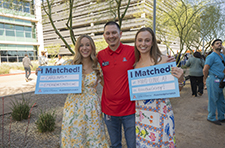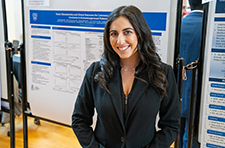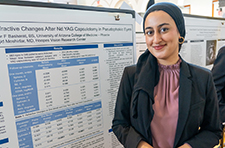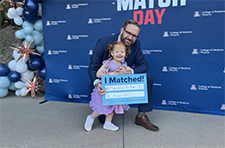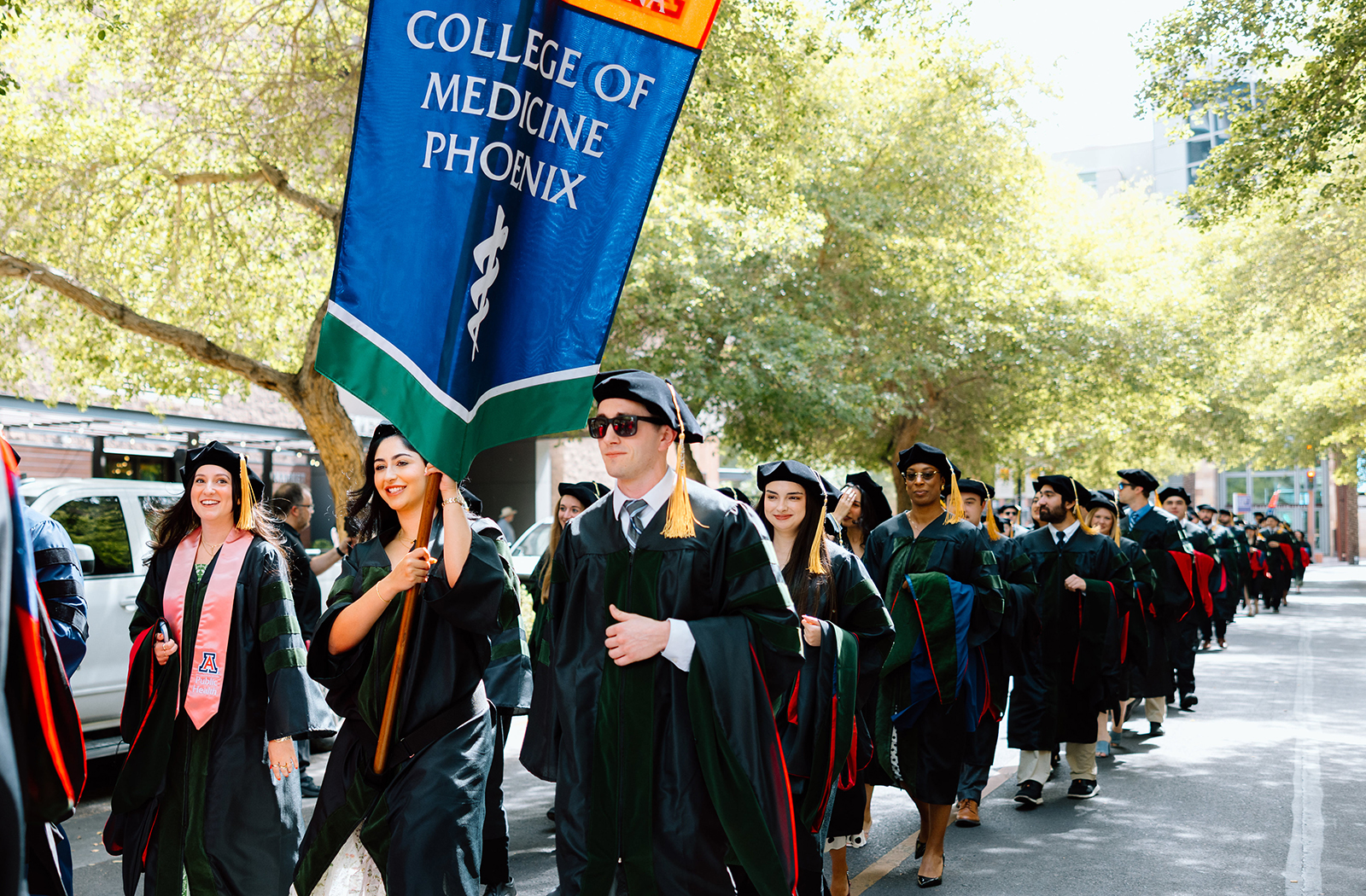
Convocation Pronounces the Class of 2025 as Physicians

Monday, May 12, the University of Arizona College of Medicine – Phoenix’s Class of 2025, led by a bagpipe and drum corps, processed through downtown Phoenix into their Convocation ceremony at the Orpheum Theatre.
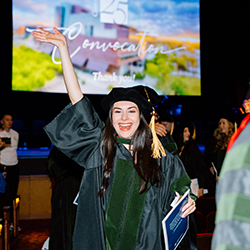
An elated crowd of loved ones awaited the almost 120 students. This momentous occasion arrived after multiple years of hard work and perseverance.
Dean Fred Wondisford, MD, MS, MBA, congratulated the physicians for their dedication toward pursuing a career in medicine and health care. He stated that the Class of 2025, which is the college’s 15th graduating class since opening in 2007, made an intelligent decision accepting the offer to do their medical training here.
“Our goal, as it has been since the very beginning, was to provide you with an exceptional medical education and to have you leave here prepared to deliver patient-centered care,” Dean Wondisford said. “You accomplished that goal, and we are here to celebrate your success.”
Additionally, Dean Wondisford advised the medical students to continue to evolve with medicine and to build trust with their patients.
“Treat the patient, not just the disease, by listening to your patients,” Dean Wondisford said. “There is more to being a physician than the medical knowledge you have learned. Building a natural rapport with your patients will help form trust in your relationship.”
Fred DuVal, treasurer of the Arizona Board of Regents, served as the Convocation speaker. In his remarks, he discussed the origins and the importance of the U of A College of Medicine – Phoenix and the difficulties of training physicians to address Arizona’s health needs.
“The effort to train the doctors needed by our growing state has always been hard,” Regent DuVal said. “The doctors who started this school realized that to meet their goals of treating Arizonan’s health, they had to engage in its politics and civic life. I am going to conclude by suggesting that so will you.”
Regent DuVal also advised the graduates to remain compassionate to others and to lead with their full capabilities as a physician, a healer and a citizen.
“I am asking that you bring your skills not just to your bedside manner but also to your civic engagement and personal leadership,” Regent DuVal said. “Bear witness to the full human condition because just as the body is made up of healthy connective tissue to ward off destructive contaminants, so too the world.”
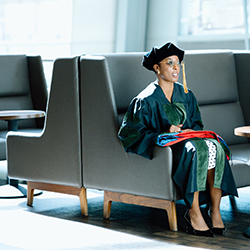
A tradition of the ceremony is the awarding of the Stuart D. Flynn, MD, Master Educator Award. This year, it was presented to Robert Raschke, MD, MS, the director of the Critical Care Selective. The award recognizes an outstanding teacher among the faculty.
The award recipient is selected by the graduating students as someone who exemplifies the dedication, hard work, compassion and discipline that it takes to be a great educator.
“An excellent physician and educator, Dr. Raschke has served as an invaluable example of the importance of providing patient-centered care, offering lessons that extended beyond just medical knowledge,” Dean Wondisford said.
Prior to the hooding of the medical students, Shannon Alsobrooks delivered the student address. Selected by her peers, Alsobrooks commended her fellow classmates for accomplishing their degrees and the dedicated deans, faculty and clinical partners for being role models.
“This day is not ours alone but represents a historic accomplishment for those who carried us through with their unwavering support, sacrifices and belief in our dreams,” she said.
Alsobrooks then highlighted important life events her peers celebrated along the way to acquiring their medical degrees, citing how students made intentional time for life while juggling the tough journey in medical school. She maintained hope that the class will remain present in their day-to-day lives.
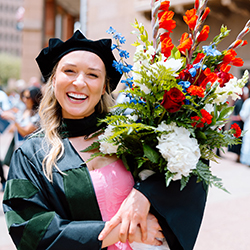
“Of course, we have all heard that in residency, the days are long, and the years are short,” Alsobrooks said. “But I want to encourage us to find those meaningful moments of joy hidden in the gaps of our busy schedules.”
For the first time, this year’s ceremony welcomed the 2025 graduates of the college’s Pathway Scholars Program, as well as graduates of the Master of Science in Clinical Research and >the College of Health Sciences’ Master of Science and Doctor of Philosophy in Clinical Translational Sciences students. The Pathway students earned their master of medical studies degree and will matriculate into medical school with the Class of 2029.
Videos and Photos
- Videos:
- Photos from Convocation (more to come).
Class of 2025 Students
About the College
Founded in 2007, the University of Arizona College of Medicine – Phoenix inspires and trains exemplary physicians, scientists and leaders to advance its core missions in education, research, clinical care and service to communities across Arizona. The college’s strength lies in our collaborations and partnerships with clinical affiliates, community organizations and industry sponsors. With our primary affiliate, Banner Health, we are recognized as the premier academic medical center in Phoenix. As an anchor institution of the Phoenix Bioscience Core, the college is home to signature research programs in neurosciences, cardiopulmonary diseases, immunology, informatics and metabolism. These focus areas uniquely position us to drive biomedical research and bolster economic development in the region.
As an urban institution with strong roots in rural and tribal health, the college has graduated more than 1,000 physicians and matriculates 130 students each year. Greater than 60% of matriculating students are from Arizona and many continue training at our GME sponsored residency programs, ultimately pursuing local academic and community-based opportunities. While our traditional four-year program continues to thrive, we will launch our recently approved accelerated three-year medical student curriculum with exclusive focus on primary care. This program is designed to further enhance workforce retention needs across Arizona.
The college has embarked on our strategic plan for 2025 to 2030. Learn more.


